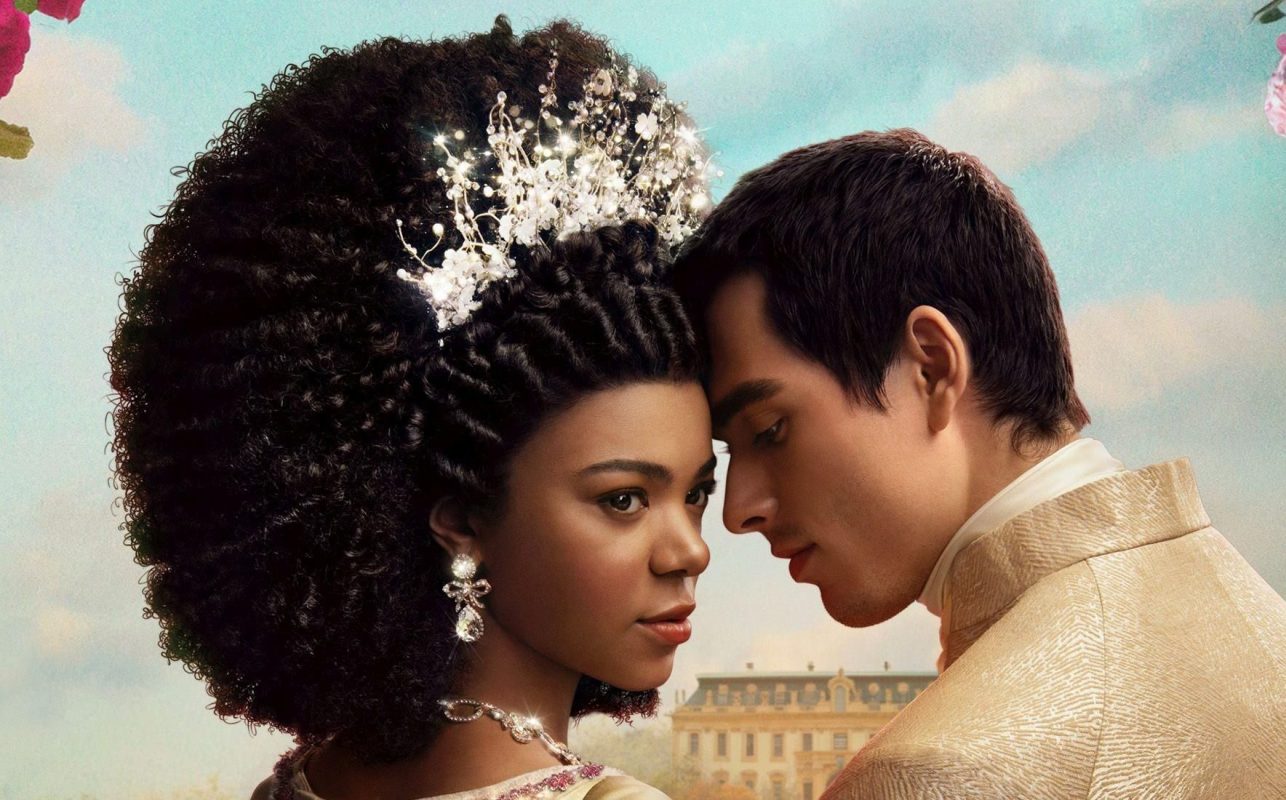Julia Quinn’s Past Comments on Black Characters in Historical Romance Reignite Criticism Amid New Book Reveal

Following the success of Netflix’s adaptation of Bridgerton, Shondaland and Nexflix announced an expansion of Queen Charlotte’s story. Over the past year, they revealed this would include a prequel show and book with Harper Collins. Written by Bridgerton creator Julia Quinn and executive producer Shonda Rhimes, this series is set about 52 years before the main Bridgerton series. The story follows the beginning of Charlotte’s quick marriage to King George III.
Between Julia Quinn’s past comments on writing ethnic and sexual diversity in historical romances and the lack of support for Black romance writers in publishing, many readers are taking issue with the choice to publish this book—especially without a Black historical romance writer at the helm. (Rhimes writes contemporary romance for TV.)
In a follow-up tweet, Marines continued, “This is why conversations about ‘color-conscious casting’ in adaptations of white stories need to happen because the big question at the heart of it will always be: who is profiting our stories?” Later in the Twitter thread, author Piper Huguley suggests she was offered to write this book but turned it down. Apparently, Harper Collins learned nothing from #PublishingPaidMe backlash because Huguley alleges they offered an abysmal four figures. That would be insulting to offer a new author, let alone an industry vet.
Julia Quinn’s past remarks on race
In the wider discussion about Quinn’s comments, two different book events in 2017 are being referenced. The tweets and TikToks reference a book discussion in Atlanta. No film or audio has emerged from this private event. However, on the Shelf Love podcast, Kianna Alexander recounted Quinn’s statement and the moments that followed.
Alexander paraphrased Quinn’s response to an audience question about the lack of Black and queer characters in her work as follows:
I write about, these happy, love stories about people who were living a very comfortable life and had all these good things going on for them. And I don’t think Black people and homosexuals were living that way during the time that I was writing. And I don’t want to write about that. I don’t want to write about the kind of life they were living.
Alexander describes the shock she and others had at the implication that Black characters having the standard romance novel Happily Ever After was interpreted as any sort of stretch. What’s troubling with this common belief is that it limits Black stories to only about suffering. White women in regency romances face patriarchal oppression, and yet it’s understood they found joy in their lives.
While this statement probably would’ve felt uncomfortable, regardless (as many have noted), Quinn said this while sitting next to one of the most popular Black writers of all time—Beverly Jenkins. Known for her depictions of Black love, Jenkins remains one of the best-selling contemporary romance writers. She came up in the romance scene right before Quinn and they both write historical fiction. Later that month, in an all-white pane —on feminism and the romance genre—at the Strand Book Store, Quinn spoke on her homogenous writing once again. At this infamous NYC panel, she (albeit very clumsy) stated that she doesn’t think she should write these stories if she doesn’t have the range to do so well. (Race has always been present in her novels, just in the background.)
I’m unsure what changed for Quinn, except seeing the profitability of writing characters of color. As Marina previously explained, this is not a “damned if you do, damned if you don’t” situation. So yeah, it’s hard to view this as anything more than a cash grab.
Charlotte looks to backtrack the progress of Bridgerton season two.

As charismatic as Golda Rosheuvel is while playing Charlotte in Brigderton, the decision to make this a prequel looks like a disaster waiting to happen. Queen Charlotte‘s teaser indicates the politics of a Black queen in an almost all-white court will play a central component of the story. Arséma Angela Adeoluwayemi Thomas (as a young Lady Danbury) says to Queen Charlotte, “You are the first of your kind. You must secure your position.” The problem with this is that Charlotte’s (as well as Lady Danbury’s and Duke of Hastings’) introduction to the court was used to “explain” why audiences would see speckles of color in another-wise pretty milk-white cast.
For those that scrubbed this from their memory, essentially, they framed King George falling in love with a Black woman (Charlotte) as the reason some Black people were allowed in the court. Reasonable viewers were able to compartmentalize the show as fiction and accept Bridgerton as a sort-of Regency fantasy. The need for an explanation caused more harm than good because it only gave us more questions than answers. Many assumed the show was in some sort of alternate universe. However, the show acknowledges slavery, colonialism, and more are a thing—and everyone on the Ton (whose wealth is tied up in this) is totally chill about it?
Seeing the backlash to unnecessary “explanation” for having a semi-diverse cast resulted in the showrunner omitting allusions to this dynamic in season two. Other than the amazing chemistry between Jonathan Bailey and Simone Ashley, this is why I and many other people of color enjoyed the second season more! We all kinda did a “let’s pretend that wasn’t established in season one.”
Anyways, if this book had to happen, this would’ve been a great opportunity to collab with a Black peer in the romance and pay them fairly.
(featured image: Netflix and Harper Collins)
Have a tip we should know? [email protected]
